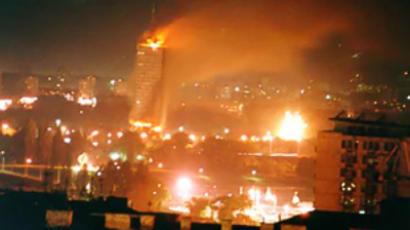Coming clean: Lavrov ready to face Afghan drug threat
While the U.S. is rethinking its strategy in Afghanistan, Russia is also working to re-establish peace in that country.
Foreign Minister Sergey Lavrov is currently visiting Kabul, where he and his Afghan counterpart signed an agreement to stop the flow of drugs across its borders.
Russian soldiers paying respect to their fallen brothers in the centre of Kabul is an image of the past. It was a scene common in Afghanistan a quarter of a century ago, but these patriotic manifestations are now only possible behind the concrete walls and barbed wire of the Russian embassy.
Fifteen thousand dead and countless injuries is the price that the Soviet Union paid for its engagement in Afghanistan. But years after the troops’ withdrawal, Russia is still losing thousands of lives each year to the Afghan threat, now in the form of drugs.
Back in the 1980’s the Soviet Union built compounds in Kabul as a culture and science centre. Once a popular meeting place for students and scholars, now the premises attract a public of a different kind – those for whom life is less tolerable than death.
“Many friends of mine have died within these walls,” a victim of Afghan drugs confessed to RT. “Many became addicted under the Taliban. Here I am in such a state too.”
With at least two and a half million drug addicts, Russia has become the world’s largest market for heroin, much of which comes from Afghanistan. From the dark cellars of Kabul to the trendiest nightclubs of Moscow, this new deadly Afghan weapon is spreading fast across borders.
“Terror and drug trafficking are like twin brothers. They feed and support each other. As far as we know, Taliban continue to support the production of drugs. This income provides their so-called military budget,” Zamir Kabulov, the Russian ambassador to Afghanistan told RT.
It has been more than two years since the Russian Foreign Minister last visited Kabul. Since then the city has become even more fortified, with NATO soldiers now guarding almost every corner. But their ever-expanding presence has so far failed to translate into better security.
“The main obstacles to the peaceful and constructive development of Afghanistan are terrorism, drug trafficking and the organized crime connected with them. All of this creates problems for this region and other regions,” Sergey Lavrov, the Russian Foreign Minister, said during a press conference in Kabul.
According to Lavrov, Russia is ready to provide all possible assistance to NATO forces, including transit of military cargo through its territory. The only option it would not consider is sending its troops back to Afghanistan.
“Military games in Afghanistan are like heroin: easy to start, hard to come clean,” and such is the stance voiced by a Russian military official.













